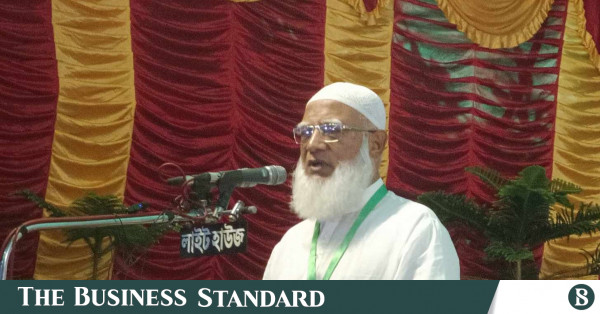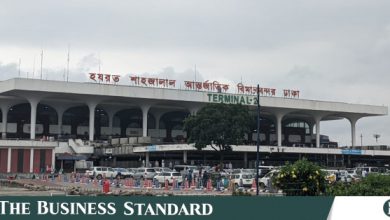Those who commit genocide have no right to do politics: Jamaat Ameer


Shafiqur also urged the interim government for an inclusive process in shaping the country’s political future
Bangladesh Jamaat-e-Islami Ameer Shafiqur Rahman addresses a gathering at the Al Faruq Society in Sonadanga on 27 September 2024. Photo: UNB
“>
Bangladesh Jamaat-e-Islami Ameer Shafiqur Rahman addresses a gathering at the Al Faruq Society in Sonadanga on 27 September 2024. Photo: UNB
Shafiqur Rahman, Ameer of Bangladesh Jamaat-e-Islami, has condemned Awami League, accusing it of committing genocide asserting that such actions disqualify any party from participating in national politics.
He made the statement while addressing a gathering at the Rukon Conference organised by Khulna Metropolitan Jamaat at the Al Faruq Society in Sonadanga on Friday (27 September).
“Those who commit genocide have no right to do politics,” said the Jamaat ameer, referring to the Awami League, underlining that political leadership should stem from the will and aspirations of the people, not through external intervention or violence. He emphasised that politics must serve the interests of the country’s citizens and be rooted in their desires.
Shafiqur also urged the interim government for an inclusive process in shaping the country’s political future.
He called for dialogue with all stakeholders, including political parties, to formulate a roadmap for electoral reforms, ensuring that the upcoming elections are fair and transparent. “A credible election is essential, and it must take place within a reasonable timeframe, allowing the government to exit with dignity,” he stressed.
The Jamaat leader expressed concern over the composition of the Education Reform Commission, claiming that individuals who do not acknowledge Allah have been included. He demanded the inclusion of Islamic scholars from both the Alia and Qawmi systems in the commission to maintain balance and integrity in the education sector.
He also highlighted the need for justice regarding the 2009 Bangladesh Rifles (BDR) mutiny, during which 57 army officers were killed. He demanded that those responsible for this and other killings across the country be brought to justice. He warned that failure to hold these individuals accountable could lead to the return of tyranny and the rise of a “third force” in the nation’s politics.
Reflecting on the Awami League’s tenure, the Jamaat chief accused it of widespread corruption and oppression. He claimed that no citizen was spared from “plunder and injustice” over the past fifteen years, with the cries of thousands of victims reaching “Allah’s Throne.”
Shafiqur connected these grievances to the July uprising led by students and ordinary citizens, which he described as a people’s movement against the regime’s injustices.
Jamaat Secretary General and former MP Professor Mia Golam Parwar, along with Central Majlis-e-Shura member and Khulna Metropolitan Ameer Professor Mahfuzur Rahman, were present at the meeting.




